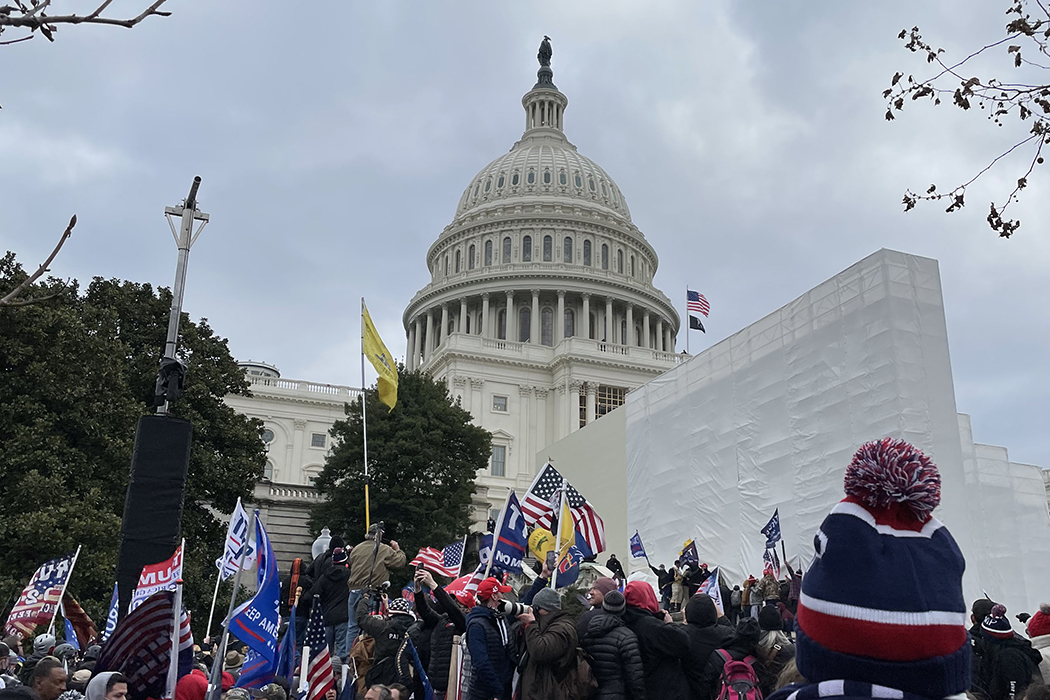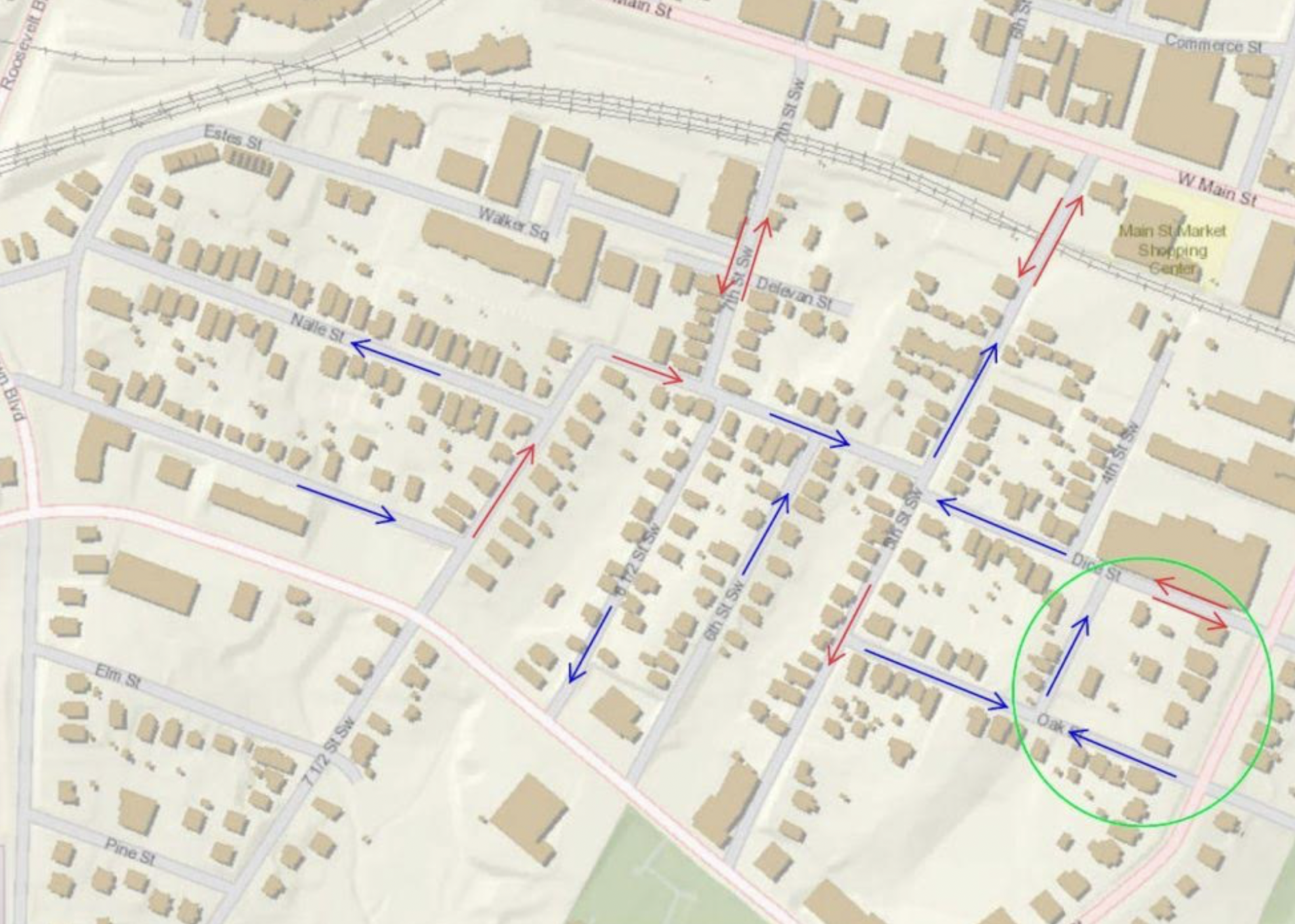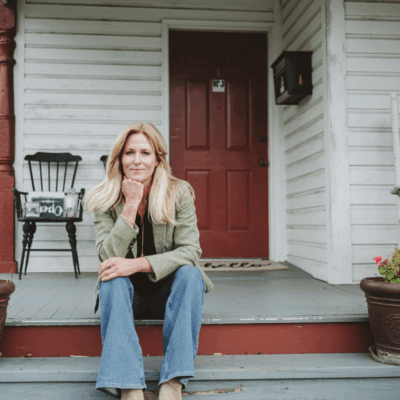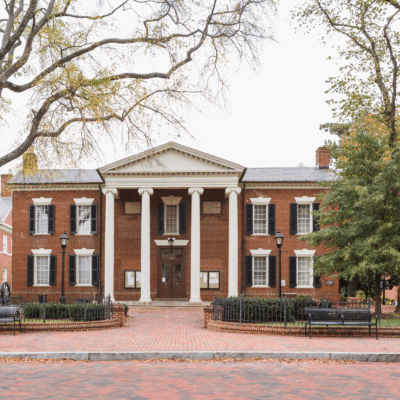The University of Virginia is deeply invested in the study of democracy. On Grounds, you can study democracy at the Frank Batten School of Leadership and Public Policy, or the Miller Center of Public Affairs, or the Center for Politics, or the Weldon Cooper Center for Public Service, or the Democracy Initiative in the College of Arts and Sciences, or the Karsh Center for Law and Democracy at the law school.
Now, the school is adding another institute to the collection. In May 2019, UVA President Jim Ryan opened the university’s Presidential Ideas Festival with a vision for an institute of democracy at the university, and in June 2021, his vision is coming to fruition, thanks to a $50 million donation from Martha and Bruce Karsh.
The Karsh Institute of Democracy, complete with shiny new facilities on the Emmet-Ivy corridor, will serve as a collaborative enterprise, bringing together scholars from all over the university to research and strengthen American democracy.
“The idea behind the institute started with a way to not take over those schools or centers, but to enhance and accelerate collaboration, so that we can do it in a more robust fashion,” says Melody Barnes, former director of the White House Domestic Policy Council under President Barack Obama, co-director for policy and public affairs at UVA’s Democracy Initiative, and inaugural executive director of the Karsh Institute.
The Karshes made their money in investing, and are now part owners of the Golden State Warriors, among other endeavors. After getting his UVA law degree, Bruce Karsh clerked for Supreme Court Justice Anthony Kennedy, who was known as the swing judge during his time on the court.
William Antholis, director and CEO of the Miller Center, is excited for the new institute because it is, by design, a “collaborative enterprise, with the goal to make the whole greater than the sum of the parts.”
In addition, Antholis says Barnes is the perfect person to lead it. “Melody is a uniquely gifted collaborative partner,” he says. “She has already proven in the College of Arts and Sciences that she can help meld together a disparate set of academic disciplines and perspectives on democracy.”
“It will be really valuable to have somebody who can look across the water and bring us together on an ongoing basis.”
I don’t want to see
the Karsh Institute end up being a mealy-mouthed, mediocre forum for talking about how we all need to get along better.
Siva Vaidhyanathan, UVA media studies professor
Certainly, now seems like the perfect time to study democracy, with an unprecedented insurrection just six months in the rearview.
According to Barnes, anyone you talk to might identify a different problem with our system, whether it’s white supremacy, or attacks on the media, or the rollback of key voting rights.
Barnes will be working this summer to create a programming plan for the first couple of years, with a focus on how the university can be legitimately helpful in strengthening American democracy.
To Barnes, the announcement of the institute was a “significant commitment by the university to the challenges facing democracy, to leverage these really wonderful assets that we already have at the university, and to bring new and original ideas with the heft of a pan-university institute to the table.”
“We really are in desperate need of a deeper understanding of what has happened to American democracy,” says Siva Vaidhyanathan, professor of media studies and director of the Deliberative Media Lab, which is a part of the Democracy Initiative. “We need historical, sociological, and economic, as well as political analysis to really understand how we might rebuild American democracy.”
However, Vaidhyanathan worries about what the Karsh Institute will become. “I don’t want to see the Karsh Institute end up being a mealy-mouthed, mediocre forum for talking about how we all need to get along better,” he says. Ryan’s introductory words on the institute made Vaidhyanathan worry that a safe space, rather than a space for truth, was his goal.
In an op-ed posted shortly after the announcement of the gift, Ryan wrote that universities “have our own work to do in rebuilding trust and credibility with all Americans, especially the skeptics who portray us only as instruments of liberal indoctrination or protectors of ingrained systems of power.”
“The most valuable work universities can undertake to support democracy is purposeful and nonpartisan,” he added.
“The worst thing that can happen to the Karsh Institute is that we become merely academic and merely committed to making UVA look like a safe space for convening,” Vaidhyanathan says. “We have to tell the truth first.”





